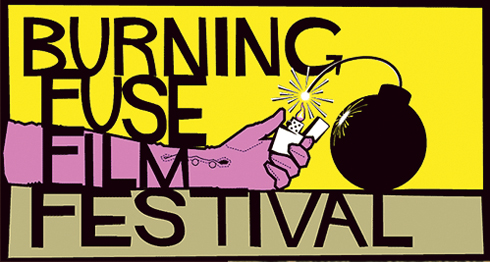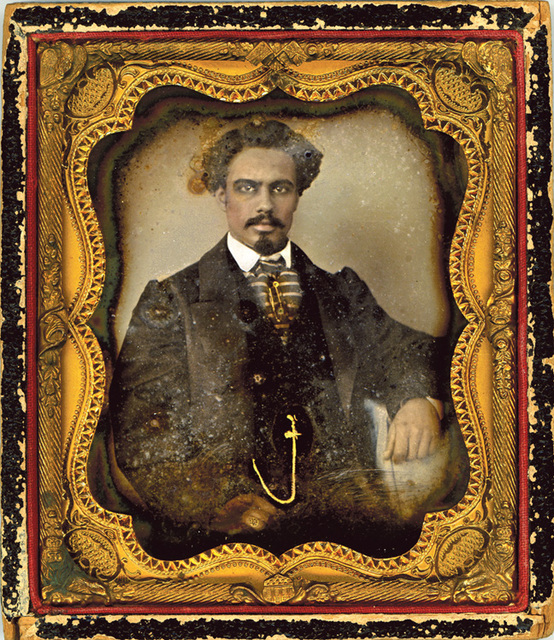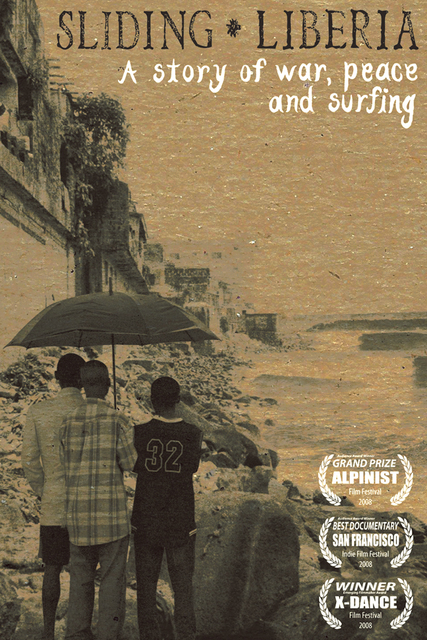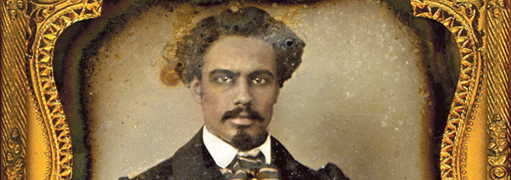Increasingly, we find ourselves living in a time when the rising tide of “reality television” has us questioning what is actually real. Is Snooki, the self-described “guidette” queen from “The Jersey Shore,” real? Well, for starters, she’s not Italian. She’s Chilean. So, I think we’re fairly safe saying no. Does Maria Kanellis, one of this stars of this season’s “The Celebrity Apprentice,” actually count as a celebrity? Do the Kardashian sisters fake relationships with sports stars to drive up ratings on “Keeping Up With the Kardashians”? Is “The Hills” entirely scripted? Are Spencer Pratt and Heidi Montag actually human? When the very term “reality” seems to be dictated entirely by drunken Hollywood debutantes and rich housewives, it’s something of a relief to see an actual documentary film hitting movie theaters. And if one film is a relief, then the Burning Fuse Film Festival—a touring collection of a half-dozen until-now undistributed documentaries—is a quenching deluge of authenticity.Over the course of its six films, Burning Fuse runs the gamut of topics and styles. One thing remains consistent, though: Each one is unafraid to confront controversy, offbeat topics or our word of the day, reality. These films are not the slickest, most polished examples of the genre. You won’t find the glossy, high-tech razzle-dazzle of docu-stylist Errol Morris ( Gates of Heaven; The Thin Blue Line; Fast, Cheap & Out of Control ) here. But by their very nature, documentaries invite a certain shagginess. If the seams are showing, if the cinematography is raw, it simply bespeaks an unvarnished truth.Two fine representatives of the films on display in Burning Fuse are Sliding Liberia and Faubourg Tremé: The Untold Story of Black New Orleans . Both are brief and to the point—each clocking in right around an hour. Emotional, absorbing and highly enlightening, they’re perfect examples of pure documentary filmmaking. Sliding Liberia starts by taking us to the West African nation of Liberia, home to some stunning statistics. During the country’s brutal 14-year civil war, 250,000 citizens were killed. Another 800,000 were turned into refugees. Oddly enough, the war-torn country is also home to one surfer. Part of the story is told through the eyes of American Nicholai Lidow, a former peace agency volunteer who worked with a number of Liberian emigrants throughout West Africa. Touring Liberia years later, after the civil war has died down, surf-loving Nick discovers a treasure trove of ideal surfing spots. He also befriends Alfred, the lone Liberian surfer. Alfred’s surfing skills have grown in total isolation. His surfboard came from a ransacked cargo container he found while searching for foodstuffs during the height of the war. He isn’t even aware of the term “surfing.” He calls it “sliding.” And yet his love of the sport is indistinguishable from Nic’s. The fact that Alfred learned to do what he does with no support, encouragement or instruction from anyone speaks to the purity of his pursuit. Sliding Liberia is a true surfing movie. The cinematography might not be as beautiful as in high-water marks of the subgenre ( Step Into Liquid, Riding Giants ), but the filmmakers play with their simple video footage, re-creating the sort of sun-bleached, Super 8 short ends look of old-school classics like The Endless Summer . Woven throughout the film’s many clips of Nic, Alfred and pals shooting impossibly perfect tubes off the Liberian coast are images of Liberia’s tragic past. The filmmakers give a brief history of the war (though not the political reasons behind it) and introduce us to various survivors. The enormity of Liberia’s fall from grace is evident. From one of the freest, most advanced countries in Africa, it has became one of the poorest and most widely avoided.But it is this history—from which the country is still just barely recovering—that makes Alfred’s story all the sweeter. Sliding Liberia might hint at a future in which Liberia is capable of exploiting international tourism. Or it might simply be the story of one man’s joy at discovering a sport he loves. Either way, it’s an unexpected, hopeful tale about finding your bliss amid adversity and hanging ten all over that fucker. Faubourg Tremé: The Untold Story of Black New Orleans is, in many ways, a similar tale of tragedy and hope. The film is narrated largely by co-writer and co-director Lolis Eric Elie, a longtime New Orleans newspaperman. Spurred on by renovations to his historic home in New Orleans’ storied Tremé neighborhood ( faubourg being French for “suburb”), Elie set out to capture on film the area’s little-known past. The history of black America has largely been written in a handful bullet points: Slavery, Abolition, the Civil Rights movement. But Tremé provides a far richer and more complex story of African-Americans. Slavery, it seems, wasn’t so “successful” in New Orleans. European-Americans (namely French and Spanish) weren’t as interested in maintaining the practice as white Southerners. In New Orleans, slaves could buy their freedom and then engage in business like any other citizen. When Tremé became New Orleans’ first suburb around 1720, it was home to many prosperous black artists, writers and business owners. It was the birthplace to the first black newspaper in America. Its schools were integrated, its population racially diverse. And yet, the story of Tremé is one of ups and downs. From the post-Civil War Reconstruction, to the Jazz Age, to the Civil Rights Era, to the disaster that hovers over the area to this very day, Faubourg Tremé has been home to fascinating, world-changing personalities. In a surprisingly brief time, the film gives viewers a feeling of historic importance, of neighborhood pride, of love, loss and community. In the wake of Katrina, the area’s future is still very much in question. But by looking to the past, Faubourg Tremé finds tremendous hope for the future.Of course, those two films only cover a third of what’s on tap at the inaugural Burning Fuse. Among the other fascinating-in-their-own-right films traveling the country this year are Pussycat Preacher , the story of a ex-stripper-turned-Evangelical-preacher, and Soldiers of Conscience , a look at conscientious objectors in modern-day war. A Snow Mobile for George examines the environmental effects of President George W. Bush’s decision to reverse legislation that would have banned certain snowmobiles. Rounding out the cinematic sextet is Murder, Spies & Voter Lies , an exposé about Clint Curtis, a computer programmer who died under mysterious circumstances after revealing the story of vote-rigging software in America. If you’ve got the stamina and the inclination, watch them all. Call it real-world insulation against MTV’s “The Real World.”
The Burning Fuse Film Festival plays Wednesday and Thursday, March 24 and 25, at Guild Cinema (3405 Central NE) Log on to guildcinema.com for a complete schedule






